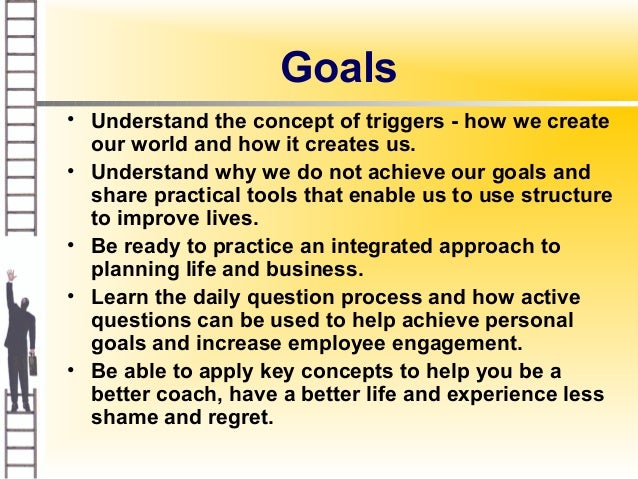|
META+COACH SESSION #1
Discover your leadership blind spots
What are leadership blind spots?...unproductive behaviors
that are hidden from ourselves but are
glaring to everyone else, mainly our followers and our business rivals .
To succeed as a manager, you need to learn how to
recognize your blind spots and overcome them. Too often, leaders demonstrate
behaviors that let down their success and consequently both their team and
their organization.
What are leadership blind spots?...unproductive behaviors that are hidden from ourselves but are glaring to everyone else, mainly our followers and our business rivals . Our behavioral blind spots could create bad and unintended consequences: They corrupt decision-making, reduce our scope of awareness, create enemies, divide teams into warring camps, destroy careers, and sabotage business results. No one is immune to blind spots, of course. But leaders are particularly vulnerable. It's enough that they must often navigate massive change and cope with stressful situations every day. But add to this the overpowering belief that many leaders shoulder: "I should have all the answers, I should know what to do, and I should be able to handle challenges alone." For many, the need to be right becomes much stronger than the need to be effective. And only the most confident leaders are willing to surround themselves with people who will point out what they're doing wrong—and be rewarded for their honesty. More often, everyone is forced to endure the boss' weaknesses in silence. Blind spots are not flaws; nor are they malicious. They are automatic behaviors. The real culprits are not the blind spots themselves. The problem is when they are unidentified and mismanaged.
There are 10 blind spots that persistently knock people
off the career ladder and undermine organizational performance. Below are
ones that I have come across most often in my work as a management consultant
(www.synergymanager.net)
Share the Burden The first is the instinct to go it alone. In my experience, that is the No. 1 blind spot. It's an obvious danger, when dealing with self-sufficient, independent leaders who have a need to be perceived as strong and tough. If you have a tendency to shoulder the burdens of life by yourself and unintentionally exclude others—colleagues, friends, and even family—then you need to be aware that this is a blind spot. Some of the symptoms of going-it-alone include rejecting offers of support, refusing to ask for help, not talking about your stress, pressure, or anxiety, isolating and withdrawing in group situations, and not including others in your thinking or in decision-making. You may think that your independent streak is a sign of strength. In actual fact, your behavior leaves others feeling frustrated, angry, and devalued. People view you as missing in action and acting as a team of one. Instead of empowering your team, you undercut it by refusing to share responsibilities, information, and decision-making. Your employees lose their enthusiasm, and you lose their support. The second blind spot that I have frequently encountered is the tendency of leaders to be insensitive to their impact on others. They're simply unaware of the damage their behavior can create. They have a low threshold for picking up on the reactions of others, perhaps because they have never bothered themselves too much with what others think. Impact Awareness The potential dangers of insensitivity become more critical when you are in a position of importance eg Head of a Dept / SBU head or finally even the CEO. Suddenly, you control the destiny of people around you. If you're making repeated blunders that you don't even see, there's little option for your team but to walk out the door. If this blind spot applies to you, your intentions may be positive but your behavior is ineffective. The rub is that people judge you by your behavior, not by your intentions. Symptoms include expecting others to respond the same way you do, not recognizing cultural differences, and dismissing feedback from others about your behavior. When you are insensitive to others, people tend to withdraw their trust. They'll work around you. At best, they may tolerate you. Others may marginalize you and, if they can, ultimately fire you. Sensitivity isn't about being soft.
It's about being aware of the signals and needs and
contributions of the people around you. It's critical to effective
leadership.
WITH BEST COMPLIMENTS
DR WILFRED MONTEIRO
THE META+COACH
www.synergymanager.net
|
META+COACH is a proven program since 1998 for FUTURE CEOs . This talent pool is chosen carefully ... star performers; hi-potentials . Our job is to put prime talent on the fast track. Our aim OUT PERFORM OWN BEST SELF... Dr. Wilfred Monteiro proprietary model is based on the cognitive-humanistic school inspired by Aaron Beck, Albert Ellis, Carl Rogers and Marshall Goldsmith. email- the.meta.coach@gmail.com
About Me

- DR WILFRED MONTEIRO BLOGSPOT
- DR WILFRED MONTEIRO (www.synergymanager.net) is India’s nationally acclaimed stalwart in the HUMAN RESOURCE MANAGMENT FIELD He is the fournder of META+COACH - the definitive model for executive coaching and mentoring for business scions and young entrepreneurs &a wide range of business professional like lawyers, architects, chartered accountants.technocrats etc. His coaching sessions have help people to find their & DEFINING MOMENTS at life and work. He has fostered THOUGHT LEADERSHIP through over numerous public seminars and conferences organised by India's leading Chamber of Commerce D He is a advisor to board of directors and a keynote speaker for international seminars & conferences
Monday, October 29, 2018
What are leadership blind spots?...unproductive behaviors that are hidden from ourselves but are glaring to everyone else, mainly our followers and our business rivals .
Wednesday, May 2, 2018
the gist of a address at the inuagural of a sales conference of a pan india multinational
SIX KEYS FOR CAREER GROWTH :
FROM SALES FRONTLINER
TO NATIONAL SALES
MANAGER
(the gist of a address at the inuagural of a sales conference of a pan india multinational )
KEY ONE; BELEIVE IN YOURSELF
The Self Doubter: A sales rep that sees and believes
everything they do is wrong. These frontliner are extremely
challenging to coach. If you provide direct feedback it may be met with “I already do that” or reasons why they don’t. The Self Doubter perceives any critiquing as weakness and personalizes it
as confirmation that they are doing a horrible job!
The trick with this type of individual is to lead them through a process of self-discovery
and improvement. By asking them a series of questions you can guide them through a process of self-awareness that will lead to an “ah ha” moment. This breakthrough may seem labour-intensive, but the payback is a stronger rep and increased performance.
KEY TWO: Proactively Manage your Boss
Your boss is no different than you. All bosses want to know two things: one, that you know what your issues
are and, two, that you are doing something about them.
Put yourself in your boss’s shoes. S/he has enough to worry
about. If your boss is spending time wondering what you are doing about your issues than they are
really questioning whether you
are effectively doing your job.
Before your boss figures out your issues,
communicate and demonstrate that you have
a plan to proactively
address them yourself. Remember, the best defence is
an offence.
KEY THREE: Manage Your Own Motivation
Welcome to management. As a rep you lived in a highly supportive environment. In management the
environment is less supportive and filled with stress. It is incumbent on you to stay inspired so you can inspire your sales people. The word inspiration comes from the Latin word “spiarae” which means to breathe, to live. I have found that there are many ways to keep oneself motivated. You can read a leadership book or take a leadership course. Make sure you take care of yourself, take mental health days, exercise and eat well.
Regardless which options you choose, it is essential that you stay inspired because your
people need your energy
as a source of motivation.
KEY FOUR : LET YOUR ATTITUDE LEAD YOU
OK, you have two candidates that you really like. One knows the products,
customers and the industry. The other candidate is passionate, driven and eager to prove them selves. The easy
answer for a busy manager is to hire the sales rep that comes with all the experience. But have you thought about what
else they bring to the table? Have you considered the infamous industry baggage?
The experienced rep may be easier on the manager for the first 6 months whereas the driven rep will have
a slower start, but in 6 months he/she will likely have
achieved better sales. Hire attitude over aptitude!
KEY FIVE : COMMIT AND SWEAR BY YOUR PERSONAL GOALS
To increase the chance that your sales frontliner will achieve
a goal they have set for themselves it is critical to have them
commit their plan to paper, write it down! When people put pen to paper it has two key benefits. Firstly, they have thought out what specific activities/steps they need to do to achieve their goal(s) and secondly the process of writing crystallizes in the brain what they intend to
do. This speaks to
commitment. With a written commitment the sales rep takes ownership of the outcome.
KEY SIX: SHARPEN YOU SELLING TECHNQIUES AFTER EVERY SALES CALL
Time and time again I have seen it. Sales frontliner going through their daily activities like robots. They have little impact on each call, they just show up and expect the business.
I call this “failure to impact syndrome.” It is contagious and can spread throughout an entire sales force. It works as long as the business grows. Everyone
gets high fives and there is no need to dig any deeper.But what happens when sales are down and senior management starts asking questions? Sales managers struggle to come up with the answers and frontliner get nervous.The cure: Get out in the field and inspire your frontliner to be innovative.SO
IN THE FINAL ANALYSIS EVERY SALES MANAGER IS A SALES COACH
with best compliments
Dr Wilfred Monteiro
the meta+coach






